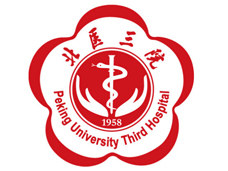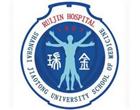老人抽搐口吐白沫可能是由脑血管病、癫痫、代谢性脑病、颅内感染、中毒性脑病等引起的,需根据具体因素进行针对性治疗。建议患者及时就医,明确诊断。
1.脑血管病
脑血管病是指由于脑部血液循环障碍导致的疾病,包括缺血性和出血性两类。缺血性脑血管病是由于脑组织供血不足引起神经细胞损伤和坏死,进而导致抽搐、意识丧失等症状;出血性脑血管病则是因为脑内血管破裂导致血液流入脑实质,压迫周围组织而引发相应症状。对于缺血性脑血管病,常用的治疗方法有溶栓治疗,如静脉注射阿替普酶进行溶栓治疗;出血性脑血管病则需要开颅手术清除血肿,如去骨瓣减压术、钻孔引流术等。
2.癫痫
Episodic seizure is characterized by abnormal electrical activity in the brain, which can lead to sudden and uncontrolled muscle contractions, loss of consciousness, or other neurological symptoms.Treatment for epilepsy typically involves antiepileptic drugs such as carbamazepine, lamotrigine, or valproic acid.
3.代谢性脑病
Metabolic encephalopathy occurs when there is an imbalance in the body's normal metabolic processes that affect the brain, leading to impaired function and potentially seizures.The treatment of metabolic encephalopathies depends on the underlying cause and may include dietary modifications, electrolyte replacement therapy, or specific medications like insulin therapy for diabetes-related conditions.
4.颅内感染
Intracranial infections, including meningitis and encephalitis, can cause inflammation and swelling within the brain, resulting in increased pressure and altered brain function, which may manifest as seizures.Antimicrobial treatments are crucial for managing intracranial infections, depending on the causative pathogen; common examples include penicillin G, ceftriaxone, or vancomycin.
5.中毒性脑病
Toxic encephalopathy results from exposure to toxic substances that disrupt normal brain function, often causing confusion, disorientation, and sometimes seizures.Managing toxic encephalopathy involves identifying and removing the offending agent, along with supportive care and potential detoxification measures, such as administering activated charcoal or dialysis.
建议定期监测患者的血压、血糖水平以及血脂指标,以预防相关并发症的发生。必要时,可考虑进行头颅磁共振成像、脑电图、颈动脉超声等检查,以便及时发现并处理潜在的问题。
1.脑血管病
脑血管病是指由于脑部血液循环障碍导致的疾病,包括缺血性和出血性两类。缺血性脑血管病是由于脑组织供血不足引起神经细胞损伤和坏死,进而导致抽搐、意识丧失等症状;出血性脑血管病则是因为脑内血管破裂导致血液流入脑实质,压迫周围组织而引发相应症状。对于缺血性脑血管病,常用的治疗方法有溶栓治疗,如静脉注射阿替普酶进行溶栓治疗;出血性脑血管病则需要开颅手术清除血肿,如去骨瓣减压术、钻孔引流术等。
2.癫痫
Episodic seizure is characterized by abnormal electrical activity in the brain, which can lead to sudden and uncontrolled muscle contractions, loss of consciousness, or other neurological symptoms.Treatment for epilepsy typically involves antiepileptic drugs such as carbamazepine, lamotrigine, or valproic acid.
3.代谢性脑病
Metabolic encephalopathy occurs when there is an imbalance in the body's normal metabolic processes that affect the brain, leading to impaired function and potentially seizures.The treatment of metabolic encephalopathies depends on the underlying cause and may include dietary modifications, electrolyte replacement therapy, or specific medications like insulin therapy for diabetes-related conditions.
4.颅内感染
Intracranial infections, including meningitis and encephalitis, can cause inflammation and swelling within the brain, resulting in increased pressure and altered brain function, which may manifest as seizures.Antimicrobial treatments are crucial for managing intracranial infections, depending on the causative pathogen; common examples include penicillin G, ceftriaxone, or vancomycin.
5.中毒性脑病
Toxic encephalopathy results from exposure to toxic substances that disrupt normal brain function, often causing confusion, disorientation, and sometimes seizures.Managing toxic encephalopathy involves identifying and removing the offending agent, along with supportive care and potential detoxification measures, such as administering activated charcoal or dialysis.
建议定期监测患者的血压、血糖水平以及血脂指标,以预防相关并发症的发生。必要时,可考虑进行头颅磁共振成像、脑电图、颈动脉超声等检查,以便及时发现并处理潜在的问题。

 北京大学第三医院
北京大学第三医院
 上海交通大学医学院附属瑞金医院
上海交通大学医学院附属瑞金医院
 首都医科大学附属北京儿童医院
首都医科大学附属北京儿童医院
 血塞通片
血塞通片
 丙戊酸钠缓释片
丙戊酸钠缓释片
 果糖二磷酸钠口服溶液
果糖二磷酸钠口服溶液

